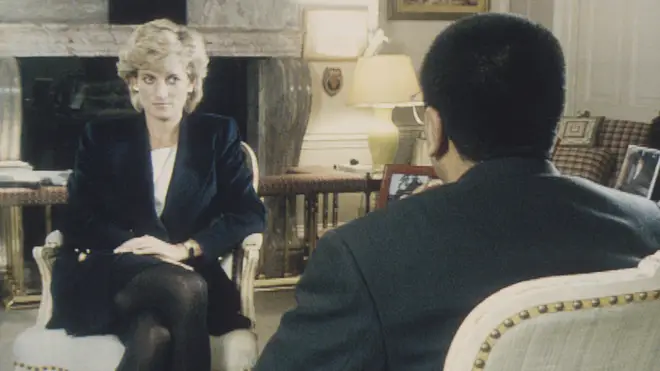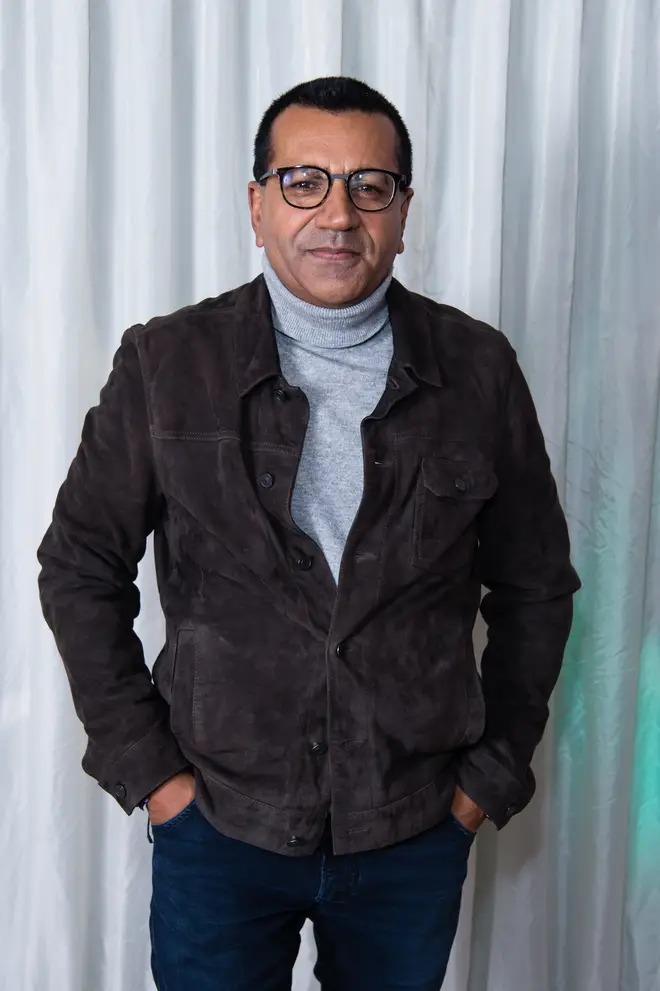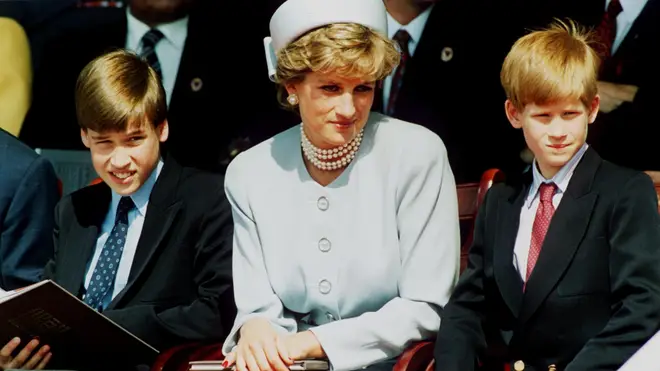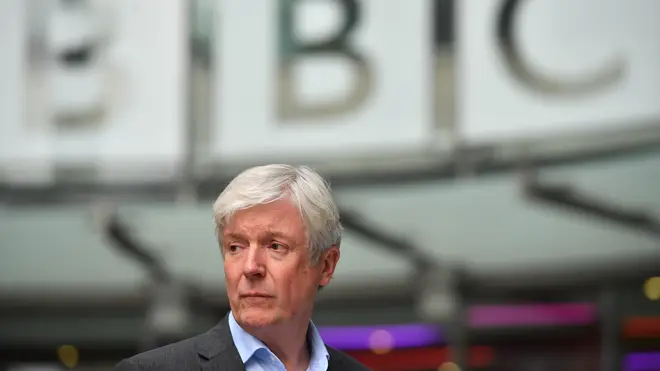
Matthew Wright 7am - 10am
21 May 2021, 17:18 | Updated: 21 May 2021, 17:21

The BBC "fell short of the high standards of integrity and transparency which are its hallmark" in its investigation into how Martin Bashir secured his interview with Princess Diana in 1995, a report has ruled.
Bashir interviewed Diana for an episode of Panorama in which she famously disclosed "there were three of us in this marriage."
The interview was watched by 23 million people in the UK, but now an independent review has found that Mr Bashir used deceit to secure the interview, a revelation that has sent shockwaves through the BBC, the royal family, and the public.

When Martin Bashir first approached Diana’s brother Earl Spencer, he did so under the pretence of offering him information about press intrusion into their family.
Mr Bashir told Earl Spencer that his former head of security was being paid to spy on the Spencer family, and created fake bank statements to “prove” that money was changing hands.
He also told Earl Spencer that Prince Charles’ private secretary – and eventually Diana’s, too – was conspiring against her.
At a time when Diana was well known to believe people were plotting against her, Earl Spencer thought his sister should hear Mr Bashir’s claims herself.
Their meeting was the first of many and eventually Diana gave a televised interview with him on November 20 1995.

James O'Brien: The BBC has to be better
The inquiry, led by the former Supreme Court judge Lord Dyson, found that Mr Bashir was “unreliable”, “devious” and “dishonest”.
It also said that he "lied and maintained the lie until he realised that it was no longer sustainable”, behaviour that “casts considerable doubt on his credibility generally".
It also said that the original inquiry into the interview, run by the BBC in 1996, failed to treat Mr Bashir’s account with "necessary scepticism and caution".
It also failed to effectively investigate the forging of the bank statements – something that Mr Bashir admitted to – and did not interview key players such as Earl Spencer himself.
The fallout from the report is likely to be substantial, and already the key players are responding to the findings.
Prince William, Diana’s eldest son, gave an extraordinary statement saying that the BBC added to Diana’s “fear and paranoia” in her final years.
"It brings indescribable sadness to know that the BBC's failures contributed significantly to her fear, paranoia and isolation that I remember from those final years with her,” said the Duke of Cambridge.
"But what saddens me most, is that if the BBC had properly investigated the complaints and concerns first raised in 1995, my mother would have known that she had been deceived.
"She was failed not just by a rogue reporter, but by leaders at the BBC who looked the other way rather than asking the tough questions."
READ MORE: BBC sends letters of apology to William and Harry over 1995 interview with Princess Diana

Prince William criticises BBC over 1995 Princess Diana interview
Prince Harry, whose move to the United States was partially attributed to the behaviour of the British press, said the “culture of exploitation” led to the death of his mother, whom he described as “resilient, brave, and unquestionably honest”.
“To those who have taken some form of accountability, thank you for owning it,” he said.
“That is the final step towards justice and truth.
“Yet what deeply concerns me is that practices like these – and even worse – are still widespread today.
“Then, and now, it’s bigger than one outlet, one network, or one publication.
“Our mother lost her life because of this, and nothing has changed.”

Lord Tony Hall, who led the initial internal inquiry and would later go on to be director general of the BBC, acknowledged the shortfalls of the original investigation.
“I accept that our investigation 25 years ago into how Panorama secured the interview with Princess Diana fell well short of what was required,” he said in a statement.
“I was wrong to give Martin Bashir the benefit of the doubt, basing that judgment as I did on what appeared to be deep remorse on his part… I am sorry that our investigation failed to meet the standards that were required.”

The current director general of the BBC said that the corporation fully accepted the findings of the report, which he described as “thorough and comprehensive”.
He said: “Although the report states that Diana, Princess of Wales, was keen on the idea of an interview with the BBC, it is clear that the process for securing the interview fell far short of what audiences have a right to expect.
“We are very sorry for this.
“Lord Dyson has identified clear failings.
“While today’s BBC has significantly better processes and procedures, those that existed at the time should have prevented the interview being secured in this way.
“The BBC should have made greater effort to get to the bottom of what happened at the time and been more transparent about what it knew.
“While the BBC cannot turn back the clock after a quarter of a century, we can make a full and unconditional apology. The BBC offers that today.”
The BBC has today published the Rt Hon Lord Dyson’s independent investigation into the circumstances around the 1995 Panorama interview with Diana, Princess of Wales: https://t.co/D8lDRmZJS1 pic.twitter.com/lpNI2HvlCc
— BBC Press Office (@bbcpress) May 20, 2021
The graphic designer who created the fake bank statements with no knowledge of what they were to be used for was the one who first warned the BBC that something was amiss.
Mr Wiessler has asked for an apology from the executive staff at the time of the interview, and warned that the full extent of the scandal is still not public knowledge.
“People like me have been waiting for a long time for vindication and for the truth to come out,” he told the BBC.
“Certain untouchable people have been swept under the carpet, and are still being swept under the carpet in all of this… I would like to speak to Tim Davey, the now-Director General, in person, exactly about that – why, to this day, it looks like the important people are being covered up.
“Certain people get an apology yesterday, a public, verbal apology on television, other people don’t.
“I need to talk and find out why this is still happening because I can tell you from my point of view – every day this goes on and this sort of cover up carries on and this trickle feeding of the truth, the public are losing confidence in the BBC’s ability to do its job.”
In March a statement from Scotland Yard said it “was not appropriate to begin a criminal investigation into allegations of unlawful activity in connection with a documentary broadcast in 1995, but should any significant new evidence emerge it would be assessed".
Now, Scotland Yard has said it will “assess” the contents of the Dyson report to “ensure there is no significant new evidence”.
Read more: Police to 'assess' bombshell report on BBC's 1995 Panorama interview with Diana

'The Bashir story is an argument for Leveson 2.'
The Prime Minister has said he is “concerned” over the findings in the Dyson report, and has urged the BBC to take steps in response.
"I can only imagine the feelings of the royal family and I hope very much that the BBC will be taking every possible step to make sure nothing like this ever happens again,” he said.
Read more: Boris Johnson 'very concerned' over damning report into BBC's 1995 Diana interview

Boris Johnson 'concerned' about report into BBC Diana interview
Princess Diana’s brother says he “draws a line” between the interview and his sister’s death two years later, saying that Diana lost trust in “really key people”.
“This is a young girl in her mid-30s who has lived this extraordinarily turbulent and difficult time in the public eye,” he said.
“She didn’t know who to trust and in the end, when she died two years later, she was without any form of real protection.”